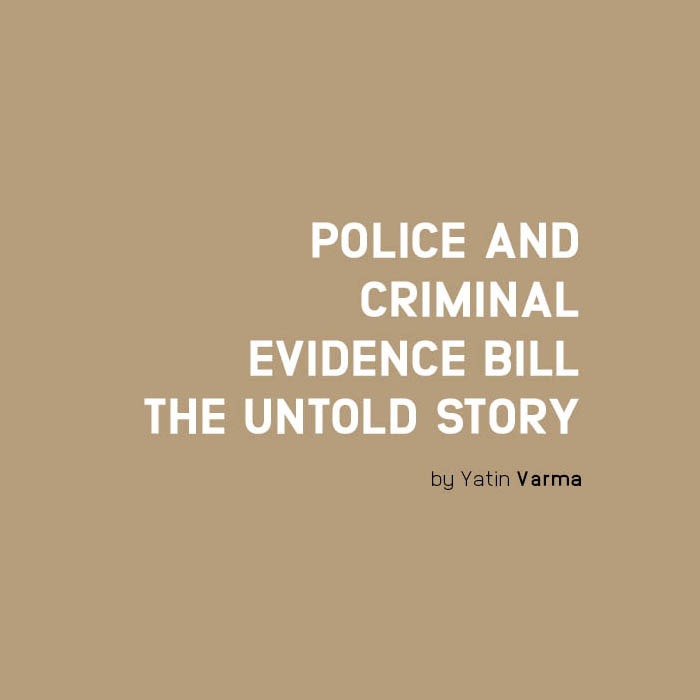There is unanimity across the political spectrum that the conduct of police enquiries should be regulated by legislation as the current system condones abuses and malpractices. In that respect, a lot has been said over the years about the preparation and finalization of a Police and Criminal Evidence Bill (PACE). Under the present Government, two Attorneys General have shouted on roof tops that such a Bill is being worked upon and will be shortly introduced into the National Assembly. Four long years have elapsed and we are still waiting. However, when Parliament resumes later this year, Government might come up with a Bill and start beating its political drum. At this juncture, it would be appropriate to go down memory lane and put things in their right perspective.
In July 2010, the Law Reform Commission(LRC) stated that the adoption of legislation and codes of practice for police and other law enforcement officers, on same lines as the 1984 United Kingdom PACE or Jersey Police Procedures and Criminal Evidence Law 2003, is the way forward for greater professionalism and transparency in the conduct of criminal investigations. Paragraph 288 of the Government Programme 2010-2015 mentioned that evidential rules, in particular the Judges Rules relating to criminal evidence and procedure will be reviewed and new legislation will be introduced to take into account developments in the law, in particular the reinforcement of human rights, be it for the accused or the victims.
Back then, I had the privilege of piloting the project and a draft Bill was prepared by the Attorney General’s Office (AGO) to enable members of the police force to discharge their functions with increased professionalism and to improve our judicial and legal systems. On 10 August 2011, Cabinet approved that it be circulated for public consultation. The draft Bill was made available publicly on 30 January 2012 and stakeholders were given until 30 March 2012 to make comments and representations. The Mauritius Bar Association even convened a special meeting on 09 March 2012 with regards to the draft Bill. As far as I can recollect, views were received from the Office of the DPP, the Independent Commission Against Corruption (ICAC), the University of Mauritius, the Human Rights Commission, the Commissioner of Police, the LRC, members of the Bar and members of the public. Several meetings were held with the major stakeholders including with Mr Gaspar, an experienced police officer who had applied both the Judges Rules and the provisions of the PACE Act during his career in the United Kingdom. He was then the UNDP/UNODC Consultant on the National Policing Strategy Framework 2010.
Professor Steve Uglow of Kent Law School and Stephen Savage of the Institute of Criminal Justice Studies of the Univeristy of Portsmouth, United Kingdom were in Mauritius from 08 to 12 July 2012 and from 18 to 22 February, 2013. The two professors acted as consultants to the AGO and the LRC in the elaboration and implementation of the proposed new legislative framework. They had working sessions with all relevant stakeholders and during the working sessions with the AGO, they reviewed the draft PACE Bill clause by clause and provided their expert input in the Bill. Their visits were made possible by the AGO, the LRC and the British High Commission.
Professors Uglow and Savage participated in a workshop entitled “ PACE: The UK and Commonwelath Experience” at the Labourdonnais Hotel, Port-Louis on 11 July, 2012. Officers from the AGO, the Office of the DPP, members of the Judiciary, representatives of the Prime Minister’s Office, members of the Police Force, the then Director and officers of the ICAC, members of the three branches of the legal profession, the LRC as well as other stakeholders including then Ministers and members of at that time opposition participated in the workshop.
On 10 April 2013, Cabinet approved the introduction into the National Assembly of the PACE Bill. The Bill was introduced and read for a first time. It was divided into four parts: Part I-Introductory Matters, Part II-Investigations with sub parts namely power to stop and search, power of entry, search and seizure, arrest, detention, provisional informations, questioning and treatment of detainees and treatment of victims, Part III-Evidence and Part IV-Miscellaneous matters. It was the first time that provisional informations would have had a legal framework with adequate safeguards and the concept of victims’ rights introduced. Very importantly, the Bill had also a provision for an individual not to be arrested on a mere allegation. The British High Commission and the UNODC offered their assistance with regard to the drafting of the Codes of Practice and enhancing the capacity of local stakeholders in relation to the implementation of the PACE Bill.
Unfortunately, I resigned as Attorney General in June 2013 and the PACE Bill was left in limbo. It would amount to intellectual dishonesty if I did not show concern for the fact that the two Attorneys General from the Labour Party who succeeded me did not carry forward the project, for reasons best known to them. Further due to political fanaticism, the present Government lost another four years when all the ground work, as elaborated above, had already been meticulously undertaken. The PACE Bill was ready to be debated in 2013 and almost six years have gone by with the police continuing with its archaic methods of investigation with little respect for rights of both suspects and victims. The Government should stop procrastinating , acknowledge the work undertaken from 2010 to 2013 and come forward with the Bill within the shortest possible delay as one more day under the current system is a day too many.


Leave a Reply